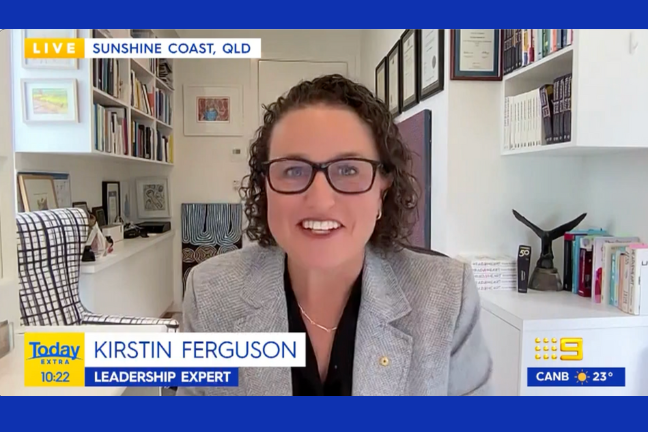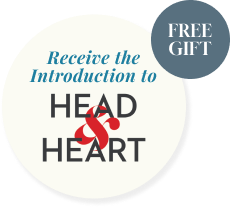
Complete the Head & Heart Leader Scale™ and receive a free, personalised report here.
Complete the Head & Heart Leader Scale™ and receive a free, personalised report here.
Earlier this week on Women’s Agenda, we shared our opinions on International Women’s Day, again.
Opinions highlighting again how we’re done with inspiration. We’re done with meaningless employer-led gestures that carry little to no actual action. And we’re certainly done with gushing handouts of flowers and cards. (No thank you, Dave Sharma).
We called for leaders to step the fuck up.
We called on leaders to engage in real positive policy outcomes for women. To value all corners of the caring economy. To quit hiding behind targets. To treat diversity and inclusion as a necessity, rather than something providing a PR opportunity. To lead with compassion.
So did we get such “step ups” from leaders this week? Certainly not from the Morrison Government, with most within the party largely shying away from any meaningful contributions on anything to do with International Women’s Day, possibly in the hope of avoiding the multiple elephants in their own party room.
But we did see it in other places, in varying acts of courage that occurred. And we especially saw it from women sharing their stories — expressing vulnerabilities, being gutsy and open in their experiences. Those speaking out may not have been typical ‘leaders’, but they are leading in varying parts of their lives. And their leadership matters.
We’re also seeing it now in the actions that will see thousands desending on Canberra on Monday, declaring ‘enough’, as well as on other cities around Australia.
And we’re seeing it from those who are demanding more from their governments, from their community leaders, from their workplaces and from their own families, friends and colleagues.
Which brings me to Dr Kirstin Ferguson’s speech to the UN Women earlier this week that has since been shared across various social platforms, and that Kirstin was also kind enough to share with Women’s Agenda.
In it, Kirstin notes that she’s usually better prepared for speeches, but had re-written this one to offer a “more visceral response”. She shared a deeply personal account of sexual harassment in the workplace, one that left her afraid and full of shame.
She asked those in the audience to stand up if they — or a friend or family members — had ever been sexually harassed at work.
Almost the entire room did.
“I stand amongst you,” she said. “Like so many women, I have been subject to sexual harassment throughout my career – starting as a young 17-year-old woman who joined the military through to being a woman now in my 40s.”
“Each time you tell yourself it is easier to just let it go, not to say anything, not to rock the boat. Each time you ask yourself whether you are somehow responsible – what did you say to cause this to happen? What did you do that made this person think their actions would be OK?
Having never directly specificed the sexual harassment she’s experienced, she shared an example because “speaking up brings with it a power of its own,.”
“In my most recent case, I was in a meeting with a much older, more senior man.
“We were in an office, probably around 8am, and people were in at work sitting at their own desks doing their usual morning things. There was no alcohol, no after work drinks. We were dressed in a business suits in an office building on just a typical working day.
“Since we were having a meeting to discuss some confidential business matters, he had closed the door. That wasn’t particularly unusual.
“In the midst of our meeting and for reasons I didn’t understand then (or now) he suddenly said something of an intimate, very personal nature that was completely inappropriate, completely unexpected and completely unwelcome.
“He moved forward, put his hands on my face and grabbed my cheek.
“I was shocked. My immediate instinct was to push my chair back and jump up and away from him.
“I immediately felt distressed and started to cry.”
Kirstin described how she had always prided herself on being professional at work, and felt ashamed to find herself crying. She started to blame herself and feel embarrassed, within seconds of him committing the act. He then followed her into a bathroom, which left her feeling trapped and terrified.
“At no moment did it occur for me to call out for help.
“At no point did I scream at him, physically push him away, tell him how much I did not want him to touch me or be near me.
“I froze and said nothing.”
She said she didn’t want him to be angry with her, she didn’t want to seem like she was overracting, she just wanted to get out.
Eventually, he moved aside, Ferguson gathered her things and left. She never told anyone other than her husband, until that day.
Kirstin said she knows there are millions of women whose names are not known, who’ve had similar experiences at work. There were women in the room where she was speaking, women at work as she was speaking, women who’d left jobs and careers due to these types of encounters.
She asked, so what do we do now?
We lead. In all aspects of life, wherever it’s possible.
Reimagine Leadership
We have the opportunity to reimagine what leadership is and can be. It’s the only kind of possibility we have for something else, as the system is broken beyond repair.
“We have in many of our most powerful institutions what I think is a vacuum of leadership. This is a NOT political comment at all and it applies across all political parties, all institutions, all industries,” said Kirstin.
“What I mean is that there isn’t a vacuum of decisions being made, financial accounts being tallied, strategic plans being developed.
“But there is a vacuum of enough leaders – a critical mass of leaders –
Kirstin made it clear to the audience that there are leaders everywhere.
“If you have a family, you’re a leader. If you run a business. If you were in the tuckship, run a big business, run the country, you’re a leader. If you speak out about sexual assault — as Grace Tame and Brittany Higgin so courageously have — you’re a leader. If you show up, you’re a leader.
“We are all leaders because we all impact others through our decisions, through our words, through our actions, and through our choices.
“Leadership is a craft – it is an art that we need to work on our entire lives. It is not something we can just read about, set and forget. It is also not something we can think does not apply to us.
“Today I want to remind every single person in this room – the attendees, the events team, the staff from the Convention Centre taking care of us today – that you are a leader. You have the power to influence change through every interaction you have, every single day.
“We can continue to speak out – loudly – when we witness inequality.”
“We can champion inequality at home with our sons with our daughters, we can champion inequality in our workplaces, our schools, our communities.”
We lead. Everywhere.




